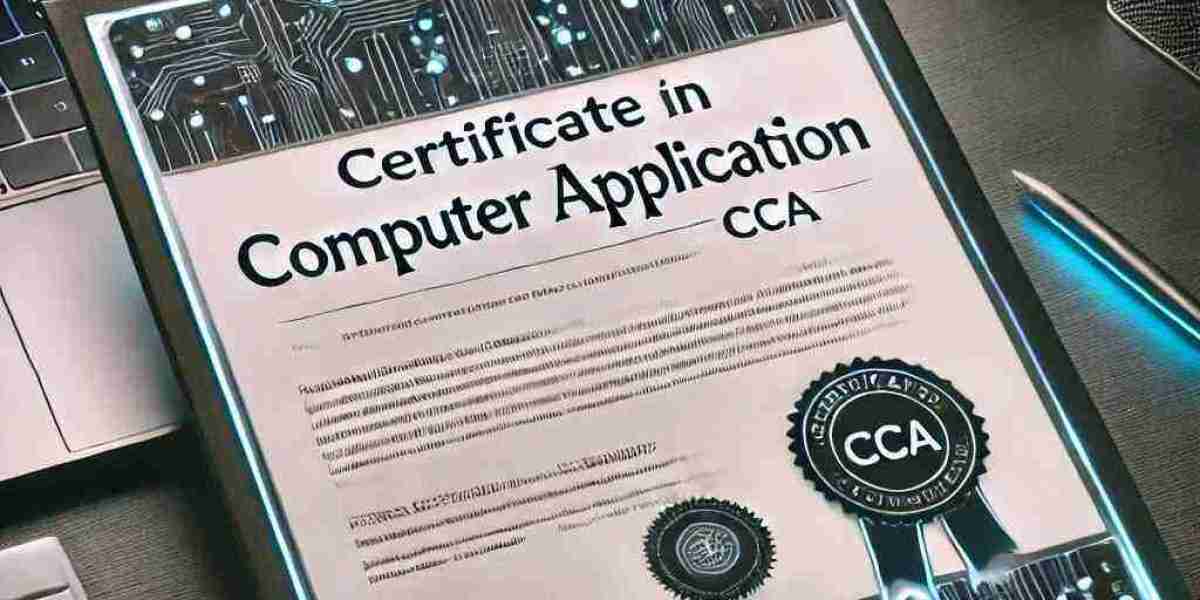Thinking about diving into the world of computers? Whether you're a student, a working professional, or just someone looking to boost your skills, understanding the basics is crucial. And that's where CCA—Certificate in Computer Application comes in. It's a straightforward, practical way to get a solid foundation in computers without feeling overwhelmed.
But here's the thing. Learning CCA concepts can feel like trying to drink from a firehose. There’s so much to cover—software, hardware, applications, and more. The good news? There’s a shortcut. A way to grasp the essentials without getting lost in technical jargon.
Why CCA Matters More Than Ever
In today’s digital age, computers aren't optional. They’re everywhere—offices, schools, homes. And knowing how to navigate them efficiently is a skill you can’t afford to ignore. A Certificate in Computer Application (CCA) equips you with the know-how to handle essential applications and tools used in everyday tasks.
Think about it. Every job, whether it's banking, healthcare, or retail, requires at least basic computer skills. With a CCA certificate, you're not just learning; you're preparing yourself for countless opportunities.
The Core Areas of CCA You Need to Know
Let’s break it down. What exactly does CCA cover? Here are the main areas you’ll focus on:
1. Fundamental Computer Concepts
Ever wondered how computers think? This part covers the basics—hardware, software, operating systems. It’s like learning the ABCs before writing sentences.
2. Office Applications
Word processors, spreadsheets, and presentations. Sound familiar? Knowing how to use Microsoft Office or Google Suite efficiently can put you ahead of others. In a CCA course, you'll learn to handle them with ease.
3. Internet and Email Management
It’s not just about sending emails. It’s about doing it professionally. You'll learn how to manage inboxes, draft proper emails, and stay safe online.
4. Basic Programming and Troubleshooting
No, you won’t become a software engineer overnight. But you'll get a taste of programming logic and how to troubleshoot common issues—essential for any computer user.
5. Database Management
Ever worked with spreadsheets? Well, database management is an extension of that—organizing, storing, and retrieving data without breaking a sweat.
How to Master CCA Without Feeling Overwhelmed
Learning something new can feel intimidating. But here’s a simple trick—take it step by step.
Start with what you know. Maybe you’re already familiar with typing documents. Build on that knowledge. Explore spreadsheets next. The key is to keep moving forward without getting stuck.
Another tip? Practice. The more you apply what you learn, the faster you’ll get comfortable. A CCA full form course isn’t just about theory; it’s about doing.
Common Challenges Learners Face
Let’s be real. Learning CCA concepts isn’t always smooth sailing. You might face:
- Technical jargon overload. Some terms might sound like a foreign language at first.
- Time management issues. Juggling work, studies, and personal life can be tough.
- Staying motivated. It’s easy to start but harder to stay consistent.
The solution? Break down your learning into small, manageable chunks. Focus on mastering one concept at a time before moving to the next. And don't be afraid to ask for help—online forums and study groups can be lifesavers.
Practical Applications of CCA in Real Life
Wondering where you'd actually use what you learn? Everywhere. Imagine you're applying for a job, and the employer asks if you can create reports using Excel. With your CCA knowledge, you'll confidently say yes.
Or think about this—you're running a small business and need to send professional invoices via email. CCA helps you do it efficiently, saving time and effort.
Choosing the Right CCA Course
With so many options out there, picking the right course can feel overwhelming. Look for:
- A well-structured syllabus. Make sure it covers all the essentials—computer fundamentals, office applications, and internet skills.
- Practical assignments. Theory is great, but application is better. Hands-on projects will make a big difference.
- Credibility of the certification. Ensure that the institution offering the course is recognized. A valid CCA full form certificate will add value to your resume.
How Long Does It Take to Complete CCA?
Most CCA courses take anywhere from 3 to 6 months, depending on your pace. Some offer flexibility, allowing you to learn at your convenience. The key? Consistency. Even dedicating an hour a day can help you complete it within months.
The Bottom Line
Mastering CCA concepts doesn’t have to be complicated. It’s all about taking small steps, staying consistent, and practicing regularly. Whether you're looking to improve job prospects or simply want to be more tech-savvy, a Certificate in Computer Application (CCA) is your gateway to success.
The skills you gain? They’re practical. They're useful. And most importantly, they're relevant in today's digital world. So, if you're thinking about learning CCA, now is the perfect time to start.
FAQs About CCA Full Form and Concepts
1. What is the CCA full form, and why is it important?
The CCA full form stands for Certificate in Computer Application, and it's important because it provides essential computer skills needed in today’s workplace.
2. How difficult is it to complete a CCA course?
It’s not difficult if you take it step by step. The key is to stay consistent and practice regularly.
3. What career opportunities are available after completing a CCA course?
With a CCA certificate, you can apply for roles such as data entry operator, office assistant, or even start freelancing with basic IT skills.
4. Do I need any prior knowledge before enrolling in a CCA course?
No, most CCA courses start with the basics, making them suitable even for beginners.
5. How does a CCA certificate help in higher studies or professional growth?
It builds a strong foundation for higher studies in IT and improves your efficiency in professional tasks, giving you an edge over others.





